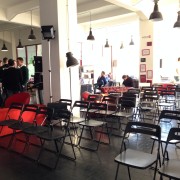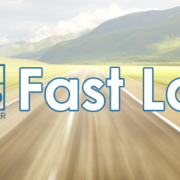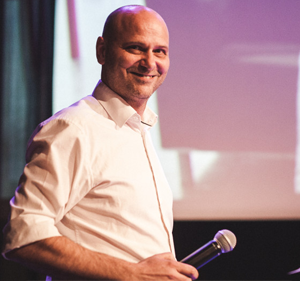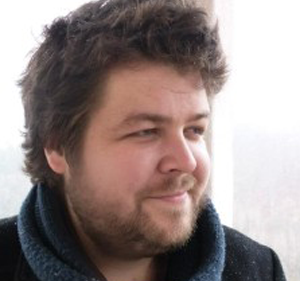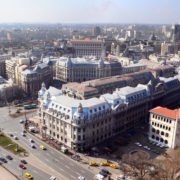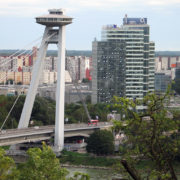What’s Special About the Cluj Tech Ecosystem?
/in Interviews/by StartupYardStartupYard has embarked on a month-long, 8 stop tour of Central European tech capitals. We’ve already visited Slovakia, Poland, and Kosovo, Bulgaria, Slovenia, and Hungary, and will be stoping in Romania (Bucharest and Cluj) next week!
But before visiting each ecosystem for StartupYard FastLane, we wanted to get to know the ecosystems we will be visiting even better. While we’ve met a lot of startups from these countries, and accelerated some of them as well, we wanted to hear from local accelerators, investors, and entrepreneurs what they thought was special about their local ecosystem. Since we’re asking startupers to come to Prague, which we think is pretty special, we wanted to see what our neighboring ecosystems really have to offer, according to some of their biggest fans.
We asked a group of entrepreneurs and influencers in the countries we’re visiting to tell us their perspective on their own ecosystem, and we are sharing that learning with you in a series of blog posts, including posts about Poland, Bucharest, Bulgaria, and Slovakia, we’ll explore what makes the Cluj Tech Ecosystem unique, ahead of our visit to ClujHub, on Tuesday September 20th.
Our Respondent:
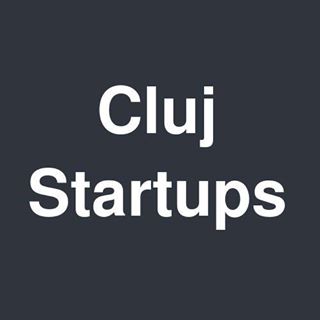 Cluj Startups: Cluj Startups is a community gathering founders, tech people, startups supporters and enthusiasts from Cluj-Napoca and the surrounding region. As a non-profit, Cluj Startups’ mission is to promote the startups based in Cluj and the events related to tech entrepreneurship taking place in our city and region. But also, to facilitate access to outsiders towards the startups and members of the community.
Cluj Startups: Cluj Startups is a community gathering founders, tech people, startups supporters and enthusiasts from Cluj-Napoca and the surrounding region. As a non-profit, Cluj Startups’ mission is to promote the startups based in Cluj and the events related to tech entrepreneurship taking place in our city and region. But also, to facilitate access to outsiders towards the startups and members of the community.
What’s Special about the Cluj Tech Ecosystem?
What do you see as the greatest advantage of the Cluj tech ecosystem, particularly for young technology startups and entrepreneurs?
Cluj is a vibrant city from the IT/tech perspective, with 200+ IT companies working with international clients, 10000+ IT professionals, 2 universities with hundreds of graduates in the IT field every year.
Whatever you want to build, chances are that you can find the right people to do it in Cluj. Many projects were developed in various industries like banking, automotive, e-commerce, retail, transportation, infrastructure, e-health. So, for really deep-technology startups, it’s a good place to start or to extend your team
What about its most important current weaknesses? How would you like to see them addressed?
Lack of strong product mindset and business development skills. As the ecosystem is relatively young, the first people to come in touch with the startups are still the ones in the tech sphere. In the next two years, the product management and product marketing expertise will be more and more required so we will see people gaining up on this side as well, completing the puzzle of Cluj as an emerging startup ecosystem.
What specialty would you say your ecosystem is most famous for, in terms of technology or business?
Our ecosystem is known definitely for the tech talent and for the IT companies which have grown here, some of them reaching even 1000 employees and more than $10 million in annual revenue. There is a constant attention towards Cluj from the outside, which brings more people interested to partner with local companies or to start a tech startup with a local co-founder/team.
Would you say the local ecosystem is dominated by more copycats, or by original, innovative solutions?
Not many copycats around here, but at the same time many of the startup ideas come usually from people with tech-background, so there is a limited pool of startup ideas we hear around here. There is a gap between the tech industry and other industries and what we need to see more often is for non-tech people, who really see problems in their industry, to partner with the tech guys in order to benefit of a complete range of expertises: business, industry and tech.
Cluj based startups need to look outside the tech business for new ideas - @clujstartups Share on XIn your opinion, does the local ecosystem look abroad for opportunities enough? Too much? What would you encourage local entrepreneurs to change in their approach to global business?
The opportunities abroad are quite visible for us, it happens often that accelerators and funds want to visit our ecosystem and get in touch with local entrepreneurs. But the first step in growing internationally, is focusing more on product-related topics and on innovation. As long as we’re caught with an overwhelming majority in outsourcing, the product-side will be harder to develop, as effort goes where the money come from on a shorter term.
Outsourcing in Cluj is a drain on the Startup ecosystem - @clujstartups Share on XHow would you describe your government’s relationship to startups and tech? Is the government helpful or is it out of touch?
This years we’ve seen a lot more government activity on supporting entrepreneurial initiatives. A total of more €150 million is in process to be released through various programs to stimulate entrepreneurship and part of these funds/grants will go as well for tech entrepreneurship and startups.
The technocrat government has proven that it is listening to tech entrepreneurs (even to individual problems that startups have) and it is more supportive than in the years before. Still the system and communication needs a lot more improvement and it needs also entrepreneurs to involve more in the consultation process.
What about Angel investors? Do you have an active community? What types of people are doing angel investing in your ecosystem?
There are a few angel investors, but they are not necessarily associated in a local group or network. However, they invest in a case by case decision, through their own means. Typically, these investors come with a tech or IT business background so they understand well enough the challenges a startup might face.
There is a gap on seed stage funding which makes a lot of startups oriented directly towards outside investors. The good side is that the ones getting funding, move faster in international, bigger markets, but the downside is that chances to get funded are lower as they compete with other european startups.
The ecosystem players are very aware of that and starting from 2017, hopes are high for growing the angel community and creating early-stage funds which to support the startups.
In your opinion, what have been your greatest local successes, and in what areas do you think the ecosystem has the most potential to grow in the next few years?
So far we have witnessed a few hybrid successes, more precisely companies that had co-founders from Cluj or technical/product teams here. In 2014, Skobbler (products and services based on OpenStreetMap) was sold to Telenav for $24 million and in 2015, Liverail (monetization platform for video publishers) was sold to Facebook for an estimated $500 million.
Wow. Cluj startups have experienced some HUGE exits in the past few years - worth over $500M - @clujstartups Share on X
There are a few startups which have now grown to have more than dozen employees and are scaling up, like Moqups (web-based application that enables users to create mockups and wireframes), Onyx Beacon (B2B solutions that helps companies develop context aware mobile applications through beacon technology), Skinvision – skin cancer detection mobile app), CRMRebs (online platform which doubles the productivity of real estate agents) and MiraRehab (product designed to make physical therapy fun and convenient for patients recovering from surgery or injury).
.@ClujStartups highlights: @onyxbeacon @moqups and others as key Cluj success stories! Read more: Share on X
What would you say to an entrepreneur or a startup thinking about relocating to your city? Any Warnings? Hidden advantages? Quirks?
Cluj is a great city to find a tech co-founder or to build the technical team. It is estimated that more than 10 000 software engineers live in Cluj, most of them working in the IT outsourcing industry, for mid-sized companies. The trend for switching jobs towards product-building ones is growing, so more developers are now inclined to take the challenge to work for startups or product-based companies.
The model, proven already, is to have the tech team here, while the business development is set in the targeted countries. The costs, availability and work quality makes the region attractive, compared with other European hubs, especially for funded startups which are really careful about spending the cash and prolonging the runway.
Cluj is welcoming to tech entrepreneurs and relocation should not be hard at all, with various points of interest:
- Coworking spaces: Cluj Cowork, Impact Hub, Cluj Hub, Zain Studio
- Programs for startups: Spherik Accelerator, Innovation Labs, Imprezzio Idea Challenge, Sprintpoint
- Plenty of tech conferences and meetups, like Techsylvania, IT Days, IT Camp, ClujJavascripters, Today Software Magazine and many many others
- Startup related communities and meetups: Cluj Startups, Startup Weekend Cluj, Startup Grind Cluj and others
Can you highlight 3 startups to watch for 2017 from your regional ecosystem? Why would you highlight them?
Visitors Analytics is a tailored analytics apps for major website builder platforms like Wix, Weebly, WordPress, Shopify and several others. It was launched earlier this year, on Wix, and it reached already more than 60 000 users.
Urby app delivers you suggestions on a daily basis, with things to do and places to go in your city. The team, located in Sibiu, has a really solid experience in city-life apps, has secured 6-figures funding earlier this year and it’s now on the way to expend internationally, after piloting a few cities in Romania.
Typing DNA is a startup located not far from Cluj, in Oradea. It was started less than 8 months, already went through 2 acceleration programs and closed seed funding. It uses typing biometrics to allow systems to detect account theft or hijacking based on his typing patterns.
Planable is a SaaS tool for social media managers to plan and collaborate on social media campaigns. It was accelerated as well and won a few pitching awards, now on their way to test the US market.
Cluj Startups to watch via @clujStartups: @typingdna, Urby App, @planableapp and visitor-analytics.net/ Share on XWorkshop and Pitching with StartupYard- Cluj, Sep. 20
/in StartupYard News/by StartupYard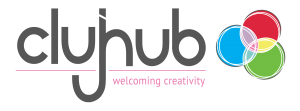 The final stop on our FastLane RoadShow will see StartupYard in Cluj, Romania, at ClujHub, on Tuesday September 20th!
The final stop on our FastLane RoadShow will see StartupYard in Cluj, Romania, at ClujHub, on Tuesday September 20th!
We will host open hours, a workshop for startups, and then listen to pitches from some of the most interesting startups in Cluj, and hopefully select a few to be “Fastlaned,” through the selection process for StartupYard.
About The Workshop
Elements of a Killer Landing Page was hailed as Prague Startup Day’s most popular workshop in 2016. StartupYard community manager Lloyd Waldo will take a deep dive into the structures and processes that help startups build successful landing pages, as well as other types of written communication, in this funny and inspiring presentation, aimed especially at startups.
Want to know the science and the art behind a killer landing page? This workshop is for you.
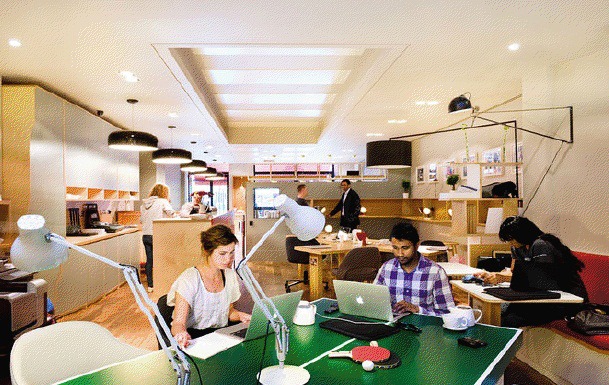
WHERE: ClujHub, Cluj
Looking forward to meeting @Startupyard Accelerator @ClujHub on Tuesday Sep. 20th! #startups #pitching Share on X
How to Pitch StartupYard in Cluj
StartupYard FastLane is your chance to pitch directly to one of Central Europe’s leading seed accelerators for technology startups, and move straight to the final selection rounds for StartupYard 2016/2, kicking off in November 2016. StartupYard will visit 9 cities in September 2016, providing workshops, office hours, and answering questions from tech communities around Central Europe.
On September 20th, StartupYard will join ClujHub, to listen to pitches from interested startups, the best of which will be offered interviews with StartupYard’s Selection Committee.
Startups who are interested in Pitching at the event should sign up to pitch, and then come to the venue during our office hours, get a chance to meet us, and tell us about their idea first.
Event Details for StartupYard, FastLane: Cluj
Agenda:
15 – 16h: Elements of a Killer Landing Page
16 – 17h: Open Hours and Q/A with StartupYard
17:00: Event starts – Info about StartupYard Accelerator
17:30 – 18:30: Pitching
18:30 – 19:30: Networking + refreshments
About Us
Two members of the StartupYard team will represent the accelerator at FastLane Cluj. Our Managing Director Cedric Maloux, and our Community Manager, Lloyd Waldo.
What We’re Looking For
StartupYard accepts startups in the Idea Stage, all the way through to companies with their first clients, users, and revenues.
Are you a Data Focused Startup, working in Security & Trust, Iot & Big Data, or Machine Learning & Prediction? Then StartupYard is your chance to get funded, launch fast, and attack the global market with the backing of some of Central Europe’s leading venture investors, including Credo Ventures, and Rockaway Capital.
Applications for StartupYard close on September 30th, 2016 . Startups can apply directly for the program by clicking here.
Read More about the Open Call, and Find Out More About Our 3 Month Program Here.
Workshop and Pitching with StartupYard, Bucharest, Sep. 19
/in StartupYard News/by StartupYard Stop 8 on our FastLane RoadShow will see StartupYard in Bucharest, at TechHub, on Monday September 19th!
Stop 8 on our FastLane RoadShow will see StartupYard in Bucharest, at TechHub, on Monday September 19th!
We will host open hours, a workshop for startups, and then listen to pitches from some of the most interesting startups in Bucharest, and hopefully select a few to be “Fastlaned,” through the selection process for StartupYard.
About The Workshop
Elements of a Killer Landing Page was hailed as Prague Startup Day’s most popular workshop in 2016. StartupYard community manager Lloyd Waldo will take a deep dive into the structures and processes that help startups build successful landing pages, as well as other types of written communication, in this funny and inspiring presentation, aimed especially at startups.
Want to know the science and the art behind a killer landing page? This workshop is for you.
Meet and Pitch to the StartupYard Team at TechHub, Bucharest
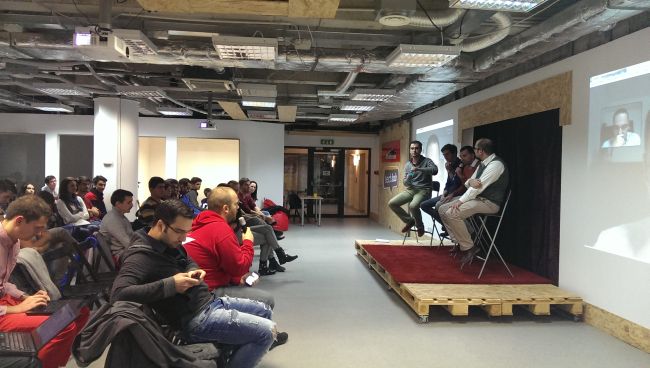
WHERE: TechHub, Bucharest
Looking forward to meeting @Startupyard Accelerator @TechHubBuc on September 19th! #startups #pitching Share on X
How to Pitch StartupYard in Bucharest
StartupYard FastLane is your chance to pitch directly to one of Central Europe’s leading seed accelerators for technology startups, and move straight to the final selection rounds for StartupYard 2016/2, kicking off in November 2016. StartupYard will visit 9 cities in September 2016, providing workshops, office hours, and answering questions from tech communities around Central Europe.
On September 19th, StartupYard will join TechHub, Bucharest, to listen to pitches from interested startups, the best of which will be offered interviews with StartupYard’s Selection Committee.
Startups who are interested in Pitching at the event should sign up to pitch, and then come to the venue during our office hours, get a chance to meet us, and tell us about their idea first.
Event Details for StartupYard, FastLane: Bucharest
Event Agenda:
14:30 – 15:30h: Elements of a Killer Landing Page
15:30 – 16:30h: Open Hours and Q/A with StartupYard
16:30: Event starts – Info about StartupYard Accelerator
17:00 – 18:00: Pitching
18:00 – 18:30: Networking + refreshments
About Us
Two members of the StartupYard team will represent the accelerator at FastLane Bucharest. Our Managing Director Cedric Maloux, and our Community Manager, Lloyd Waldo.
What We’re Looking For
StartupYard accepts startups in the Idea Stage, all the way through to companies with their first clients, users, and revenues.
Are you a Data Focused Startup, working in Security & Trust, Iot & Big Data, or Machine Learning & Prediction? Then StartupYard is your chance to get funded, launch fast, and attack the global market with the backing of some of Central Europe’s leading venture investors, including Credo Ventures, and Rockaway Capital.
Applications for StartupYard close on September 30th, 2016 . Startups can apply directly for the program by clicking here.
Read More about the Open Call, and Find Out More About Our 3 Month Program Here.
What’s Special about the Bulgarian Tech Ecosystem?
/in Interviews, StartupYard News/by StartupYardStartupYard has embarked on a month-long, 8 stop tour of Central European tech capitals. We’ve already visited Slovakia, Poland, and Kosovo, and Hungary, and will be stoping in Romania (Bucharest and Cluj), Bulgaria, and Slovenia.
But before visiting each ecosystem for StartupYard FastLane, we wanted to get to know the ecosystems we will be visiting even better. While we’ve met a lot of startups from these countries, and accelerated some of them as well, we wanted to hear from local accelerators, investors, and entrepreneurs what they thought was special about their local ecosystem. Since we’re asking startupers to come to Prague, which we think is pretty special, we wanted to see what our neighboring ecosystems really have to offer, according to some of their biggest fans.
We asked a group of entrepreneurs and influencers in the countries we’re visiting to tell us their perspective on their own ecosystem, and we will share that learning with you in a series of blog posts, including posts about Poland, Bucharest, and Slovakia, we’ll explore what makes the Bulgarian Tech Ecosystem unique, ahead of our visit to CoWorking Space by Puzl, in Sofia, on Wednesday September 14th.
What’s Special about the Bulgarian Tech Ecosystem?
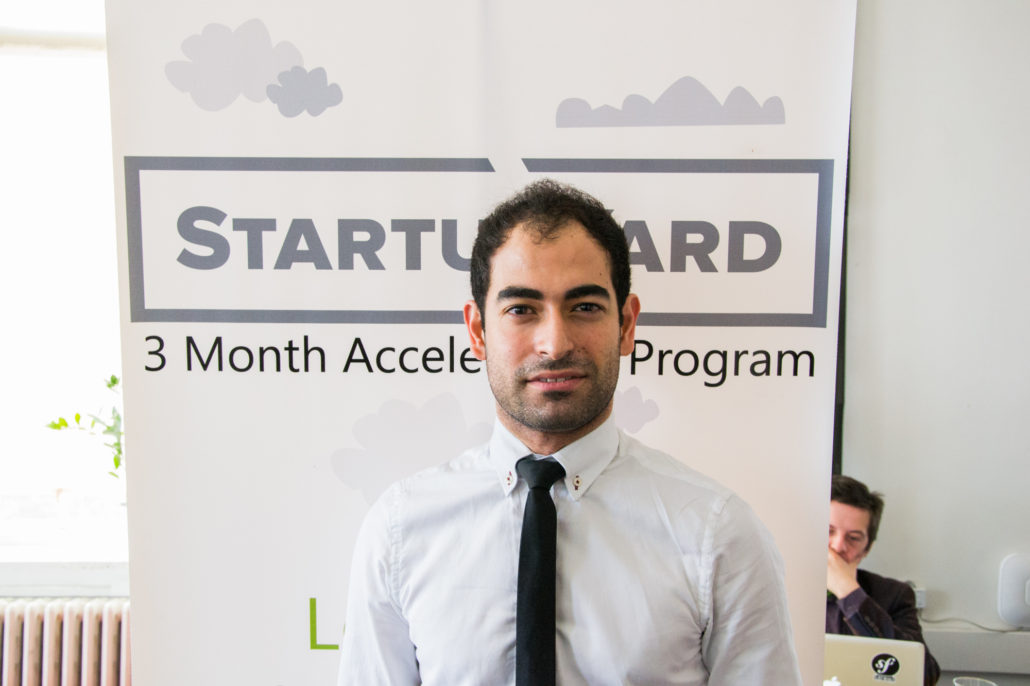 Alexander Karadjian, Founder and CEO of Speedifly
Alexander Karadjian, Founder and CEO of Speedifly
Born and raised in Bulgaria, Alexander Karadjian moved to the US at the age of 19. He received his Bachelor’s and Master’s degrees in architecture from Harvard and went on to work at some of world’s leading architectural offices such as OMA and Studio Rafael Moneo. Alexander’s passion for travel and his adventurous nature led him to found SpeediFly, the first social travel platform for spontaneous last-minute travel, and a StartupYard Alum. A visionary and a believer, he is optimistic that SpeediFly will redefine the way young people think about travel and will inspire people go out and explore the world. Speedifly raised over 300,000 euros, from private investors and StartupYard. In addition to traveling, Alexander enjoys drawing, fishing and playing tennis in his free time.
What do you see as the greatest advantage of your tech ecosystem, particularly for young technology startups and entrepreneurs?
There is no doubt that the greatest asset of the Bulgarian Tech Ecosystem is the access to talent and the relatively low price (in comparison to the rest of Europe and the US) at which entrepreneurs can gain access to this talent. It is impossible to think of a thriving technology startup environment where there is a noticeable shortage of developers. In Bulgaria there are plenty of extremely talented developers, and the local economy is actually adjusting to the growing need for more specialists in this field – new IT academies pop up in Sofia every year. The challenge for startups, of course, is that big corporations from the US and Western Europe outsource a lot of their IT work to Bulgaria, which especially during the last couple of years, makes it more difficult for startup founders to make competitive enough offers to the top developers available in the ecosystem.
Alex Karadjian of @speedifly: outsourcing to Bulgaria a challenge for local startups seeking talent. Share on X
What about its most important current weaknesses? How would you like to see them addressed?
Well, the greatest weakness, I believe, is the access to smart money. There are a lot of very rich people in Bulgaria who indeed want to invest their money, but they do not have the necessary experience to add much more than the money to the startups they can potentially invest in. It is simple – there are almost no people in Bulgaria who have done this “startup thing” successfully in the past so as to provide guidance to entrepreneurs. Most of the Bulgarians who have this experience stay in San Francisco, New York or London. Incubators such as LAUNCHub and Eleven try to bring such people to the ecosystem, but it’s not easy. This is a process that will take a lot of time. And to be honest, for startup founders who work on their first businesses it’s extremely difficult to be competitive without adequate mentorship.
Alex Karadjian of @speedifly: Biggest challenge to #Bulgarian #Startups is access to smart money, and mentorship Share on X
What speciality would you say your ecosystem is most famous for, in terms of technology or business?
I would say that the development of games is thriving in Sofia. I do not follow this branch so closely but I talk to so many people who turn out to be developing games – it’s crazy. These kinds of startups are usually not under the spotlight, but some of them are doing really well.
Would you say the local ecosystem is dominated by more copycats, or by original, innovative solutions?
Well, “copycat” sounds quite offensive, which is why I do not want to use this word, but at the same time, having studied and lived in the US, I cannot say that our ecosystem is a birthplace of significant innovative solutions.
Let’s face the reality, having great ideas and a lot of developers in the same place is not enough. Most of the local founders don’t have the necessary academic background to even imagine what real technological innovation means – if I have to abide to my definition of word innovation, of course. If one goes to Y Combinator, one can see startups building new types of airplanes – this is unimaginable in a country like Bulgaria. Yes, there are Bulgarians studying engineering and physics at MIT, Harvard and Stanford, but those people do not come back to our ecosystem. Let’s not forget that in the early 2000’s the US was investing something like 17 times more money in research and technology that all the countries in Europe together. The consequences are quite clear, I think.
Alex Karadjian of @speedifly: Bulgaria needs its best minds to come home. Share on X
What would you say your locally grown entrepreneurs are best at? What is their greatest strength in international business?
I have never thought about this. Maybe they are best at building beautiful solutions, and by beautiful I mean visually compelling. If only they were as good at sales!
Alex Karadjian of @speedifly: Bulgarian startups build visually compelling products Share on X
In your opinion, does the local ecosystem look abroad for opportunities enough? Too much? What would you encourage local entrepreneurs to change in their approach to global business?
I don’t think local entrepreneurs are open enough to embrace global opportunities and this is indeed a problem because the Bulgarian market is too small not only to capitalize on, but also to be used as a test ground. Some B2C products can be tested locally, but most of them, as well as all new B2B solutions, should be tested against much bigger markets. Only then can our local entrepreneurs adequately evaluate the potential and the weaknesses of their products.
What does your ecosystem offer that others can’t? What is your local “killer feature?”
Corporate tax is 10%! And as I said before, cheap access to top-shelf talent is still a big advantage.
How would you describe your government’s relationship to startups and tech? Is the government helpful or is it out of touch?
At this point the government is indifferent, which is not too bad. I say this because in Bulgaria many politicians have “invaded” local small and medium sized businesses using political power. Fortunately, technological startups are too complicated for them – there’s no easy money there, which is most probably what keeps them away from negatively interfering with the startup ecosystem.
Alex Karadjian of @speedifly: Bulgarian gov is hands-off with #startups and that's a good thing Share on X
What about Angel investors? Do you have an active community? What types of people are doing angel investing in your ecosystem?
Yes, there is an active Angel investor community in Sofia. Actually, I recently heard that a guy in Sofia is making an Angel investment platform to facilitate the presentation of pre-screened startups to this community of Angels. This opportunity to bring angels and startup founders close together is vital for our ecosystem, as most of the angels in Bulgaria don’t have prior experience with startups. They usually come from the financial industry, from the construction industry or from various business related to reselling goods/building materials.
In your opinion, what have been your greatest local successes, and in what areas do you think the ecosystem has the most potential to grow in the next few years?
Telerik was without any doubt the biggest success story in Bulgaria. In 2014 this company offering software tools for web, mobile and desktop application development was sold for $262.5M to Progress Software, which made the acquisition one of the biggest deals ever in Central and Southeastern Europe. Two years later, it still appears that the greatest potential of the local ecosystem is related to offering tools for the development of various IT platforms.
What would you say to an entrepreneur or a startup thinking about relocating to your city? Any Warnings? Hidden advantages? Quirks?
Be careful with the freelancers – you cannot really rely on many of them. And mess with the local institutions as little as possible. The legal system is still a mess, which is the major obstacle to bringing more investments to Sofia.
Can you highlight any startups to watch for 2017 from your local ecosystem? Why would you highlight them?
I would follow with great interest the Peer2Peer investment platform iUVO group. It provides investors with the opportunity to invest in diversified portfolios and respectively brings something really fresh to the market. I would be very curious to see how they grow.
Workshop and Pitching with StartupYard in Ljubljana, Mon. Sep 12th!
/in Startup Tools, StartupYard News/by StartupYardStop 6 on our FastLane RoadShow will see StartupYard in Ljubljana, at ABC Accelerator, Ljubljana, on Monday, September 12th.
We will host open hours, a workshop for startups, and then listen to pitches from some of the most interesting startups in Ljubljana, and hopefully select a few to be “Fastlaned,” through the selection process for StartupYard.
About The Workshop
Elements of a Killer Landing Page was hailed as Prague Startup Day’s most popular workshop in 2016. StartupYard community manager Lloyd Waldo will take a deep dive into the structures and processes that help startups build successful landing pages, as well as other types of written communication, in this funny and inspiring presentation, aimed especially at startups.
Want to know the science and the art behind a killer landing page? This workshop is for you.
Meet and Pitch to the StartupYard Team at ABC Accelerator, Ljubljana

WHERE: ABC Accelerator, Ljubljana
Looking forward to meeting @Startupyard Accelerator team @abc_accelerator on September 12th! #startups #pitching Share on X
How to Pitch StartupYard in Ljubjana
StartupYard FastLane is your chance to pitch directly to one of Central Europe’s leading seed accelerators for technology startups, and move straight to the final selection rounds for StartupYard 2016/2, kicking off in November 2016. StartupYard will visit 9 cities in September 2016, providing workshops, office hours, and answering questions from tech communities around Central Europe.
On September 12th, StartupYard will join ABC Accelerator, to listen to pitches from interested startups, the best of which will be offered interviews with StartupYard’s Selection Committee.
Startups who are interested in Pitching at the event should sign up to pitch, and then come to the venue during our office hours, get a chance to meet us, and tell us about their idea first.
Event Details for StartupYard, FastLane: Ljubljana
Event Agenda:
15h: Elements of a Killer Landing Page with Lloyd Waldo
16: Open Hours and Q/A with StartupYard MD Cedric Maloux
17:00: Event starts Info about StartupYard Accelerator
17:30 – 18:30: Pitching with Startups
18:30 – 19:30: Networking + refreshments
About Us
Two members of the StartupYard team will represent the accelerator at FastLane Ljubljana. Our Managing Director Cedric Maloux, and our Community Manager, Lloyd Waldo.
What We’re Looking For
StartupYard accepts startups in the Idea Stage, all the way through to companies with their first clients, users, and revenues.
Are you a Data Focused Startup, working in Security & Trust, Iot & Big Data, or Machine Learning & Prediction? Then StartupYard is your chance to get funded, launch fast, and attack the global market with the backing of some of Central Europe’s leading venture investors, including Credo Ventures, and Rockaway Capital.
Applications for StartupYard close on September 30th, 2016 . Startups can apply directly for the program by clicking here.
Read More about the Open Call, and Find Out More About Our 3 Month Program Here.
What’s Special About the Bucharest Tech Ecosystem?
/in Interviews/by StartupYardStartupYard has embarked on a month-long, 8 stop tour of Central European tech capitals. We’ve already visited Slovakia, Poland, and Kosovo, and will be stoping in Romania (Bucharest and Cluj), Bulgaria, and Slovenia.
But before visiting each ecosystem for StartupYard FastLane, we wanted to get to know the ecosystems we will be visiting even better. While we’ve met a lot of startups from these countries, and accelerated some of them as well, we wanted to hear from local accelerators, investors, and entrepreneurs what they thought was special about their local ecosystem. Since we’re asking startupers to come to Prague, which we think is pretty special, we wanted to see what our neighboring ecosystems really have to offer, according to some of their biggest fans.
We asked a group of entrepreneurs and influencers in the countries we’re visiting to tell us their perspective on their own ecosystem, and we will share that learning with you in a series of blog posts, starting with last weeks post about Poland, and Slovakia Today, we’ll explore what makes the Bucharest tech Ecosystem unique, ahead of our upcoming visit to TechHub Bucharest on Monday, September 19th.
 Our Respondent: HowtoWeb Bucharest
Our Respondent: HowtoWeb Bucharest
How to Web is one of the most important startup oriented events, dedicated to innovation, technology, and entrepreneurship in South East Europe. The conference targets technology innovators, startups, startup founders, web entrepreneurs, tech product developers, outsourcing companies interested in innovation, investors, as well as all tech and web lovers. Startup Spotlight is a deal-making program for the best early stage tech startups. The program offers the participants valuable connections, mentoring, investment opportunities and cash prizes.
How to Web will kick off on November 1st 2016 in Bucharest
Register for How to Web 2016 today.
What’s Special about the Bucharest Tech Ecosystem?
What do you see as the greatest advantage of your tech ecosystem, particularly for young technology startups and entrepreneurs?
Bucharest and other cities like Cluj-Napoca, Timisoara, Brasov and Iasi are important cities in the region in terms of the availability of tech talent, with amazing software engineers, marketers and product people.
Bucharest also offers many advantages when it comes to company establishment procedures, particularly in terms of taxes and legal aspects. Consumer prices, including rent in Bucharest are much lower than in other big cities in Western Europe, as well as commercial property, energy, and utilities. Adobe, Intel, Microsoft, Electronic Arts and Amazon all have development offices in Romania, next to Bitdefender, a Romanian based company and the number 1 security product in the world.
Add to this a well-developed internet infrastructure, and you’ve got every reason to start your company in this city.
What about its most important current weaknesses? How would you like to see them addressed?
Romania lacks business and product skills. Although in the past years we have seen a significant development of the marketing and product development skills, Romanian entrepreneurs have yet a long way ahead to acquire business skills, sales principles, and the capacity to raise investment on their own.
Romania still lacks business and product acumen, makes up for it with engineering talent: @how_to_web Share on X
What specialty would you say your ecosystem is most famous for, in terms of technology or business?
The Romanian tech ecosystem is particularly famous for its wealth of intellectual capital. We also have a large number of companies in the field of cyber security, and gaming and entertainment.
Would you say the local ecosystem is dominated by more copycats, or by original, innovative solutions?
The local tech ecosystem is definitely dominated by original solutions, most of them in SaaS in the first years. Starting around mid-2014, we noticed the advent of startups in hardware, Machine Learning (Artificial Intelligence), Neural Networks, 3D printing, and Virtual and Augmented Reality.
What would you say your locally grown entrepreneurs are best at? What is their greatest strength in international business?
Because of their well-developed technical skills, Romanian entrepreneurs have the capacity to iterate fast, and develop products with global potential. They are also early adopters, with great team management skills, which turns them into valuable assets for a startup success.
In your opinion, does the local ecosystem look abroad for opportunities enough? Too much? What would you encourage local entrepreneurs to change in their approach to global business?
As funding is hard to find, startup founders usually target international investors. Romania is a big enough market to test products, although the customer behavior is different sometimes from the ones in a bigger market, and this has to be taken into consideration when launching a new product.
Of course, this depends on the business type and goals. As an ecosystem, we need to grow more on the product side as this is a better path towards developing global businesses. IT outsourcing companies and corporate development centers contributed a lot to the ecosystem development, but now it is estimated that this will reach a plateau, so we need to develop other connected branches, such as our own product development, and leverage our technical skills in this area.
Romania needs to pivot to a product oriented startup environment: @how_to_web Share on X
What does your ecosystem offer that others can’t? What is your local “killer feature?”
Our “killer feature” is the technical know-how, the expertise of software developers. Based on that, we’re now witnessing a shift towards product development which will take up more space and importance in the years to come.
How would you describe your government’s relationship to startups and tech? Is the government helpful or is it out of touch?
There is a gap, but it is reducing bit by bit. It’s not a short-term process and it takes a lot of effort, but it’s going in the right direction.
The government is increasingly paying attention to the tech industry and tech entrepreneurs, particularly in the last few years. The fact that IT produces more than 6% of Romania’s GDP has raised awareness in the public administration and opened doors for support and innovation programs. There is still a long way to go in assuring good implementation, but the good thing is that there is a lot of proactivity and effervescence among the local actors, adding to the administrative pressure to improve things in this respect.
What about Angel investors? Do you have an active community? What types of people are doing angel investing in your ecosystem?
There are a few organizations clustering angel investors, especially in Bucharest, as well as other angels who are not affiliated to an investment structure. Doing investment syndicates is also a practice which is often met when it comes to raising more consistent sums. They are usually active at a pre-seed/seed level, doing investments which average around 500k euro in a year.
In your opinion, what have been your greatest local successes, and in what areas do you think the ecosystem has the most potential to grow in the next few years?
In the past 4 years, we have counted 15 exits, totaling up to 1 billion euros, to private equity funds and international companies like Twitter, Facebook, Naspers, Ringier, or Francisco Partners. The most notable ones were Avangate, LiveRail, Skobbler, UberVU, eJobs, and Imobiliare.ro.
The most developed verticals are cyber-security, e-commerce and gaming, due to thecompanies active in these areas and the expertise accumulated over time.
In the past year #Romanian #startups have seen 15 exits worth a total of over 1 Billion Euros! re: @how_to_web Share on X
What would you say to an entrepreneur or a startup thinking about relocating to your city? Any Warnings? Hidden advantages? Quirks?
A model that we saw more and more often is to have a development center here and the business development side in the bigger markets targeted by the startup. We’ve witnessed as well foreigners looking for Romanian co-founders and forming joint startups. The advantage of the ecosystem is a good balance regarding costs, the expertise available and tech talent, in comparison with Western countries.
HowtoWeb: Romania is an ideal development platform for western #startups @how_to_web Share on X
Can you highlight 3 startups to watch for 2017 from your local ecosystem? Why would you highlight them?
TypingDNA – typing biometrics that allows the user to login based on his typing pattern, innovative product with huge potential.
Symme 3D – multifunctional Delta platform for 3D printing, PCB milling, laser engraving, pick and place – innovative product that has grown fast over the past years.
Axosuits – medical exoskeleton for people with disabilities, could disrupt the entire industry.
Romanian Startups to watch via @howtoweb: @typingdna @symme3d & @axosuits Share on XWhat’s Special about the Slovak Tech Ecosystem?
/in Interviews, StartupYard News/by StartupYardStartupYard has embarked on a month-long, 8 stop tour of Central European tech capitals. We’ll be visiting Slovakia, Romania, Bulgaria, and Slovenia, and have already been in Kosovo, Albania, and Krakow, Poland as well.
Getting to Know The Slovak Tech Ecosystem
But before visiting each ecosystem for StartupYard FastLane, we wanted to get to know the ecosystems we will be visiting even better. While we’ve met a lot of startups from these countries, and accelerated some of them as well, we wanted to hear from local accelerators, investors, and entrepreneurs what they thought was special about their local ecosystem. Since we’re asking startupers to come to Prague, which we think is pretty special, we wanted to see what our neighboring ecosystems really have to offer, according to some of their biggest fans.
We asked a group of entrepreneurs and influencers in the countries we’re visiting to tell us their perspective on their own ecosystem, and we will share that learning with you in a series of blog posts, starting with this week’s post about Poland. Today, we’ll explore what makes the Slovak Ecosystem unique, ahead of our upcoming visit to The Spot on Tuesday, September 6th.
About Our Respondents:
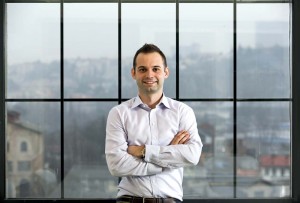 Andrej Kiska Jr, Credo Ventures: Kiska is a StartupYard Mentor, and a Partner at Central European tech VC firm Credo Ventures, where he has been since 2011. At Credo, Kiska sources and evaluates potential investments, while actively supporting existing portfolio companies in fundraising and growth. Though Kiska is based in Prague, he has deep ties to his native Slovakia, where his father has been President since 2014. Kiska was educated in the United States at the University of Virginia’s McIntire School of Commerce, where he studied finance and management.
Andrej Kiska Jr, Credo Ventures: Kiska is a StartupYard Mentor, and a Partner at Central European tech VC firm Credo Ventures, where he has been since 2011. At Credo, Kiska sources and evaluates potential investments, while actively supporting existing portfolio companies in fundraising and growth. Though Kiska is based in Prague, he has deep ties to his native Slovakia, where his father has been President since 2014. Kiska was educated in the United States at the University of Virginia’s McIntire School of Commerce, where he studied finance and management.
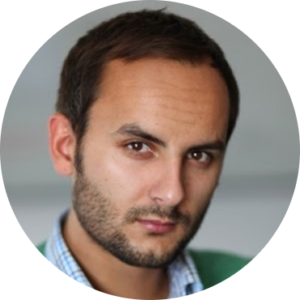
Jaroslav Luptak, Neulogy Ventures: Luptak is an investment manager at Neulogy Venturesm a Bratislava-based early-stage VC fund. He’s a co-founder of www.startupawards.sk, the largest startup event and the most prominent startup competition in Slovakia. He graduated with a degree in finance from the Rotterdam School of Management.
What’s Special about the Slovak Tech Ecosystem?
What do you see as the greatest advantage of the Slovak tech ecosystem, particularly for young technology startups and entrepreneurs?
Luptak: This greatly differs per company, but in general I’d say its the availability and quality of technical talent.
Kiska: So the standard response to this question goes somewhere along the lines of “we are great technologists who can’t sell themselves. ”Up until recently I had no idea whether that claim can be true or how to measure it. But after the first year of operations of our non-profit Starlift (organization we started last year with Lenka Kucerova with the aim of sending prospective young people from Central Europe to year-long internships in startups in Silicon Valley), I can stay that early data does not validate that claim at all.
Data doesn't validate the claim at #slovak #entrepreneurs can't sell themselves: @kiskandrej @LenkaKucerova Share on XWe received over 150 applications, out of which roughly 100 were engineers or designers. There were more than 30 interviews of of 16 candidates (so most applicants didn’t have a profile interesting enough even to be invited to an interview) by 14 startups and so far we placed one candidate, with most candidates not passing technical interviews. That might not necessarily mean that they are bad at coding, perhaps they were not ready for the kind of coding interview that U.S.-based startups conduct or we just didn’t attract the right talent, but in my opinion it does show that our young technical people might not be as competitive on the global startup market as may want to think.
The greatest advantage right now in the ecosystem in my opinion is the availability of capital. There is a lot of capital available already, and there will be more of it with the launch of state funds or some other planned initiatives. For young technology startups and entrepreneurs this is great news: startups that would not get funded in more mature ecosystems like London or Silicon Valley can get funding in Central Europe. In Slovakia the situation is changing because the EU Jeremie program that financed most of startups in the past two years has recently expired, but there is a new government initiative launched already to replace it.
What about its most important current weaknesses? How would you like to see them addressed?
Luptak: The greatest weakness of the Slovak startup ecosystem is lack of success stories and hence lack of expertise in scaling tech companies globally. However, as the local ecosystem grows and there are several exciting startups with the potential to get global scale, these companies will eventually produce a new breed of entrepreneurs with such experience under their belt.
Kiska: There are very few entrepreneurs with global operating experience, resulting in few companies that truly have global potential. I think too many entrepreneurs want to build a global company with very little understanding of how to actually go about it.
Organizations like Starlift try to explain to young potential entrepreneurs that it might be beneficial to first acquire some experience from global startups in more mature ecosystems before starting your company and taking advantage of the local ecosystem. This is more difficult to explain in such a favorable local investment environment, because even entrepreneurs with a below excellent track record and ideas can get funded, so their natural question is to ask why would they go work for a startup in the Valley if they can get funding for their own ideas here.
The problem is that the stuff you learn from your own mistakes and local investors’ money will not necessarily increase the odds that your next venture will be more successful, because you haven’t learned how to build a successful startup. You have just learned one of the many ways how not to do it. That’s why I believe it is better to learn the skill set from an experienced team in a mature ecosystem, as opposed to learning it from your own mistakes.
Failure doesn't prepare you for success. Success prepares you for more success @kiskandrej Share on XWhat speciality would you say your ecosystem is most famous for, in terms of technology or business?
Luptak: Probably the flying car. I would also mention www.startupawards.sk, which gained considerable recognition over the years. If one wants to meet the entire Slovak startup ecosystem in one place, that the go-to event.
Kiska: Slovakia is pretty famous for software security and heavy manufacturing.
Would you say the local ecosystem is dominated by more copycats, or by original, innovative solutions?
Luptak: Slovak domestic market is rather small, so copycats don’t really have much space in Slovakia. It actually one of the advantages of Slovak startups as they are forced to go international early on.
Small size of the Slovak market keeps startups from staying local @jaroslavluptak Share on XKiska: I think it is easier for local execution businesses to find a sustainable business model and thus break even, so I guess you can say you see more of them lasting longer. But a lot more value gets created by original innovative solutions with global solutions, even though they are few and far between. Take the example of Eset: its valuation is higher than most local copycats in Slovakia added together.
What would you say your locally grown entrepreneurs are best at? What is their greatest strength in international business? ‘
Luptak: I hate to generalize on such a heterogenous group of people, but I’d say that Slovak entrepreneurs are much better at the technology part and not so much with marketing, sales and business development.
Kiska: They are hungry. They might have very little idea of what they are doing when it comes to building global businesses, but boy Slovaks have huge ambitions, drive and aggressiveness.
In your opinion, does the local ecosystem look abroad for opportunities enough? Too much? What would you encourage local entrepreneurs to change in their approach to global business?
Luptak: Those entrepreneurs that are not looking abroad barely stand a chance of success. Slovaks are in my view quite humble and often underestimate their skills. It often happens that founders hesitate with releasing a product as they believe its not good enough, but then get confronted with the competing products that get a lot of media hype while being technologically inferior.
Kiska: They definitely don’t look abroad enough, for experience, hiring or inspiration. I would encourage them to listen more and be willing to learn: too many entrepreneurs here believe they know it all, and if things go south they blame it on everyone from customers to employees or investors.
What does your ecosystem offer that others can’t? What is your local “killer feature?”
Luptak: I’d say that Slovakia is a great test market. Many multinational corporation actually use Slovak customers to test their new products and services. For a startup it is quite easy to get media attention or get connected to decision makers as the market is relatively small and interconnected market.
Kiska: The hunger. I see it even when I compare Slovaks to Czechs or Poles. I think Slovaks are more driven, ambitious and aggressive.
Killer feature of Slovak tech #startups is hunger @kiskandrej Share on XHow would you describe your government’s relationship to startups and tech? Is the government helpful or is it out of touch?
Luptak: The government has recently started to push agenda related to startups. There are several legislative updates being underway, primarily focused on decreasing bureaucracy in setting up businesses and ability to implement standard VC terms within contracts. The government is thus far also the biggest single investor in startup companies via several different investment schemes.
Kiska: I think the government is sincerely trying on certain levels. The problem is that they are not sure how to help, and thus their efforts often end up being counterproductive, low impact at best. Even if they tried their best, there is very little in how they can help improve the ecosystem. That’s why I believe government should just leave the ecosystem alone and try to contribute indirectly: by improving education system or attract top international talent to our country, as opposed to driving them out of the country.
Slovak government needs to mostly get out of the way of innovation: @kiskandrej @Jaroslavluptak Share on XWhat about Angel investors? Do you have an active community? What types of people are doing angel investing in your ecosystem?
Luptak: There are still very few angel investors active in Slovakia. However, more and more successful entrepreneurs are getting involved with startups as mentors and/or investors. This is in my view the evidence of the ecosystem starting to work as the know how and capital gets recycled through early-stage investments.
Kiska: Yes, one of Slovakia’s strengths is its angel community. Compared to say the Czech Republic, there are more angels who are founder friendly and very supportive. This skill set is very hard to come by in angels in other countries in Central Europe, especially the Czech Republic and Hungary.
In your opinion, what have been your greatest local successes, and in what areas do you think the ecosystem has the most potential to grow in the next few years?
Luptak: Typically, people would mention companies like Eset, Sygic or Pixel Federation, which are the role models for this generation of entrepreneurs. From more recently established companies, I’d mention Piano.io (one of our portfolio companies) which is currently the biggest provider of media paywalls in the world. I believe the potential for growth is in industry 4.0. applications and companies working on innovations in design. This is in particular due to strong manufacturing tradition (#1 per capita car producer in the world) and number of Slovak companies innovating in this space. There is also a strong design tradition in Slovakia and several companies are innovating not on products, but on how products are being designed.
Kiska: Eset for sure. Sygic & Piano are apparently doing well. But the successes of global startups in Slovakia are much smaller in quantity and quality compared to, say, the Czech Republic.
What would you say to an entrepreneur or a startup thinking about relocating to your city? Any Warnings? Hidden advantages? Quirks?
Luptak: I think in the coming years, Bratislava will increasingly attract entrepreneurs from around the globe. The city is improving rapidly in terms of infrastructure and culture and the startup ecosystem is really vibrant. The ecosystem is also getting really international and I’d say Slovaks are very welcoming.
Andrej: Let’s say my city is Bratislava [Kiska is currently based on Prague]. There is a lot of capital, some talent, great party scene and good quality of living. If you are a foreigner though, Slovakia is a very homogeneous country that does not know how to treat foreigners or expats, so you will have a hard time digging deep into the ecosystem, e.g. for hiring purposes.
Can you highlight 3 startups to watch for 2017 from your local ecosystem? Why would you highlight them? –
Luptak: As for a VC, its really hard to highlight my favorite companies and not to brag about our portfolio only, but I’ll give it a try. I believe www.gadrilling.com will be doing their first commercial applications in 2017 and this is definitely a disruptive hard-core technology to watch. In 2017, www.photoneo.com is also expected to come to market with their new 3D camera that should significantly expand the array of task robots are able to perform in an industrial setting. Vectary.com is already opening beta accounts to first users and is expected to be in full swing in 2017, ready to democratise 3D modelling experience.
Kiska: I will try to focus on the breakouts, not the household names.
I am for sure biased, because it is in our portfolio, but Photoneo for me really stands out. These guys build an incredible piece of technology, and are generating revenue way ahead of when we expected they could even start monetizing. These guys are simply crushing it.
I have also heard Vectary is up to good things, I think their product is timed well and hear good things about the team.
Then the RF Elements guys. These guys have balls. It is a very cash-intensive business though. If they don’t raise a big round in the next 12 months, it will be tough. If they do, they can go big.


